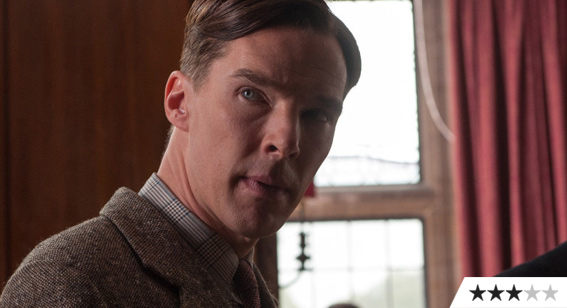Review: The Imitation Game

The story of British code-cracker Alan Turing is, in essence, about his significant role in World War II with his counter-invention to the German’s Enigma machine. While the “modified” facts may raise an eyebrow and/or finger, The Imitation Game makes the “legend” of Turing abundantly clear: he was a flawed, courageous, ingenious individual who served a society that did not serve him or “his kind”.
You could have used a high-school calculator to cast this film: Charles Dance is a stiff-upper-lip British commander; Mark Strong is the smartest and coolest guy in the room; Keira Knightley is Turing’s bubbly, mousey assistant Joan Clarke. It’s typecasting to a ‘T’, which isn’t a bad thing – the actors absorb their roles with total conviction. But it’s Benedict Cumberbatch who is left with top honours as Alan Turing, mingling ‘intellectual superiority’ and ‘social outcast’ with experienced excellence while nurturing a growing internal despair over something his character cannot reveal: his homosexuality.
All other areas of filmmaking on display remain functional but unflashy, from the effective yet discrete production design to the purposeful yet forgettable score. It makes the clunky storytelling moments more apparent, whether it’s an all-too-convenient turn in character motivation (Turing goes from ‘asshole’ to ‘top bloke’ by buying apples) or a piece of narration from Captain Obvious (“I’ve got to separate the carrots from the peas” as he separates the carrots from the peas).
It’s exactly the sum of its parts, resulting in a film that may be more conventional than some were expecting. But even though its construction feels (*cough*) formulaic and (*ahem*) by-the-numbers, it’s all in service of making Alan Turing’s legend known – as well as the tragically unjust actions taken upon him years afterwards. In this regard, the film is worth a watch.
‘The Imitation Game’ Movie Times















